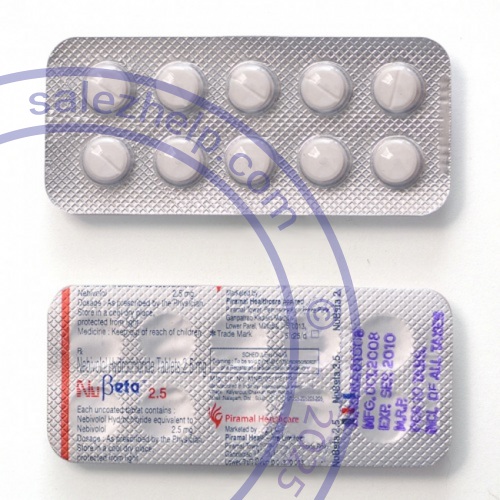Bystolic
Bystolic is a medication used to treat high blood pressure. It works by blocking certain chemicals in the body that can cause the blood vessels to constrict, allowing the blood to flow more easily and reducing the workload on the heart. It belongs to a class of drugs called beta blockers and is taken orally once a day.
- 2.5mg
- 5mg
- 10mg
What is Bystolic used for?
Bystolic is primarily used to treat high blood pressure or hypertension. It is also sometimes prescribed to treat heart failure and angina (chest pain).
How does Bystolic work?
Bystolic works by blocking certain chemicals in the body that can cause the blood vessels to constrict, allowing the blood to flow more easily and reducing the workload on the heart. It also slows down the heart rate, which can help to reduce blood pressure.
What are the side effects of Bystolic?
Some common side effects of Bystolic include headache, fatigue, dizziness, nausea, and diarrhea. More serious side effects can include difficulty breathing, chest pain, and a slow or irregular heartbeat.
How is Bystolic taken?
Bystolic is taken orally once a day, usually in the morning. It can be taken with or without food, but should be taken at the same time each day.
Is Bystolic addictive?
No, Bystolic is not addictive. It does not produce a high or cause dependence.
Can Bystolic be taken during pregnancy?
Bystolic should only be taken during pregnancy if the benefits outweigh the risks. It is not recommended for use during the first trimester of pregnancy.
Can Bystolic be taken with other medications?
Bystolic can interact with other medications, so it is important to tell your doctor about all the medications you are taking, including over-the-counter drugs and supplements.
How long does it take for Bystolic to work?
Bystolic can start to lower blood pressure within a few hours of taking the first dose, but it may take several weeks to achieve the full effect.
How should Bystolic be stored?
Bystolic should be stored at room temperature, away from heat and moisture. It should be kept in its original container, with the lid tightly closed.
What are known local names of the medication?
- Nebivolol

